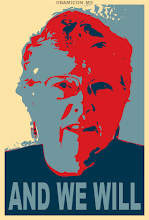Tension Roils Peru After Deadly Amazon Clashes
YURIMAGUAS, Peru (Reuters) - Indigenous protesters and Peru's army refused to back down and a truce looked distant on Saturday, after two battles in the Amazon jungle killed some 50 people in the worst crisis of President Alan Garcia's term.
Protesters said 30 of their own died and the government said 22 members of the security forces perished in two days of clashes over Garcia's drive to bring foreign companies to the rainforest to open mines and drill for oil.
The bloodshed has prompted widespread calls for Garcia's prime minister to quit, underscored divisions between elites in Lima and the rural poor and threatened to derail the government's push to further open Peru to foreign investors.
Garcia lashed out at the protesters, saying they had attacked their own country, acted like terrorists and may have been incited by foreigners. A fierce critic of leftist leaders elsewhere in Latin America, Garcia did not say who he meant.
The army imposed curfews, but thousands of Indians with wooden spears vowed to dig in at blockades along remote Amazon highways and keep protesting if government forces did not halt efforts to break up their demonstrations.
"We are fighting because we fear our land will be taken away," said Denis Tangoa 38, a protester at one blockade.
About 10 police officers kidnapped by protesters were killed and nearly two dozen were freed when troops moved in to end a hostage crisis, National Police Chief Miguel Hidalgo told Peru's RPP radio on Saturday. Several hostages were reported missing.
BATTLE AT 'DEVIL'S CURVE'
In a clash on Friday, 11 police died when they broke up a roadblock, about 870 miles north of Lima along a stretch of highway known as "Devil's Curve" the government said.
At least thirty protesters were killed, according to Champion Nonimgo from AIDESEP, Peru's leading indigenous rights group. "We are talking about more than 30 indigenous deaths so far," Nonimgo said.
The government put the number of protesters killed in Friday's clash at nine.
Garcia blamed leftist opponents for the violence and his office issued a statement saying protesters had "carefully planned an attack against Peru" and used "methods identical those of the Shining Path."
The Shining Path was a brutal insurgency that waged war against the state in the 1980s and 1990s, until
its leaders were caught and holdouts went into cocaine trafficking.
"Shame on those politicians who can't win elections so they get together irrational groups to do what they did," said Garcia.
Indigenous tribes, worried they will lose control over natural resources, have protested since April seeking to force Congress to repeal new laws that encourage foreign mining and energy companies to invest billions of dollars in the rain forest.
"We are not going to give up until they reverse these laws that will damage us. They want to take away our lands and forest and make our traditions disappear," said Luis Huansi, a leader of the Shawi tribe at a roadblock between the towns of Tarapoto and Yurimaguas.
Men, women and children from the subsistence farming region had occupied the highway. Some were dressed in long red tunics, wore headbands and carried wooden spears. Families have set up tents of plastic sheeting along the roadside.
DEVELOPMENT LAGS
Though Garcia is a favorite of investors, his approval rating is 30 percent and he is especially unpopular in the Amazon, where development has lagged.
Critics say he has not done enough to reduce the poverty rate from 36 percent and that economic boom times failed to reach the poor before the current downturn.
They also fault Garcia's policies favoring free markets and foreign investment as mainly benefiting urban elites.
Garcia claims he will cut poverty faster than a new wave of leftist presidents that he often trades barbs with: Bolivia's Evo Morales and Venezuela's Hugo Chavez. But he has yet to win support from the poor.
Indigenous groups oppose laws passed last year as Garcia moved to bring Peru's regulatory framework into compliance with a free-trade agreement with the United States.
Tribes said Garcia's allies acted in bad faith when they blocked a motion in Congress on Thursday to open debate on a law they want overturned. Violence erupted the next day.


Links to this post:
Create a Link
<< Home